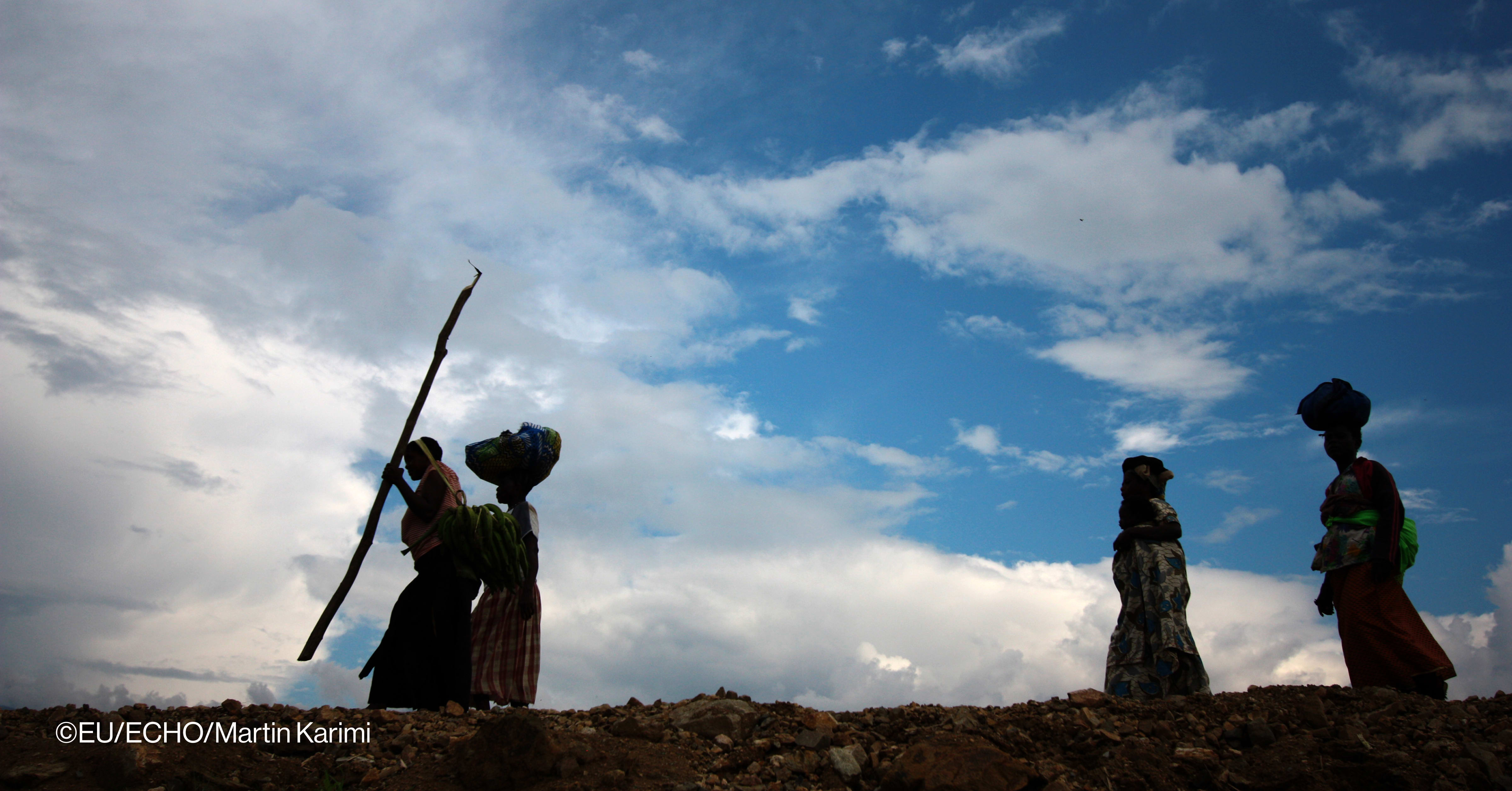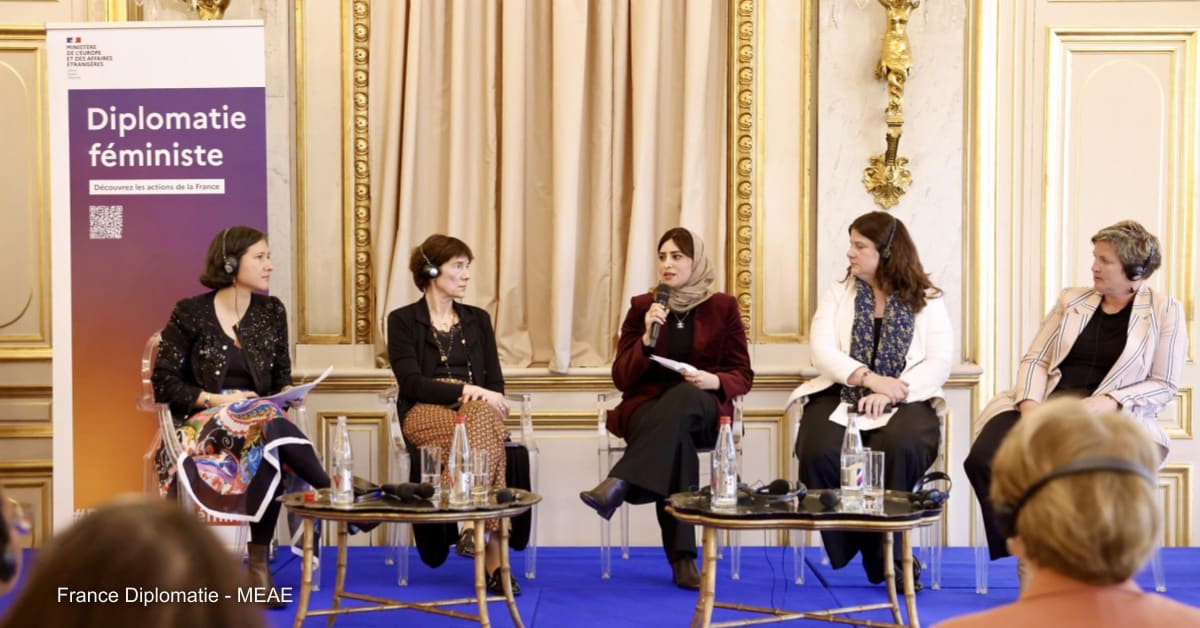Corporate development in conflict has a gender problem
Multinational companies working on economic development in conflict-affected areas are at serious risk of excluding women in their programming, writes International Alert's Jana Naujoks in this guest commentary.
A group of women’s rights activists and organizations gather in a small cafe while night falls outside. “For us, the biggest problem is sexual abuse,” one said. I was in Popayan, Colombia, to ask them about their biggest concerns considering the rapid growth of the extractive sector in Colombia, from gold and iron, to coal and petrol and its impact on their lives. The sexual abuse they spoke of is a pre-existing problem exacerbated by years of conflict and increasing extractive activity, and comes both from men in their own indigenous communities as well as outside, from men with guns. Whether these were rebels, paramilitaries or national security forces, the distinction between them is less relevant to the women than the impact on their lives. On a different continent, women in Uganda, a country currently undergoing an oil boom, are wondering: “What’s in it for us?” From the many different voices and perspectives, several key themes emerged: hopes for increased prosperity and employment or improved local services and infrastructure came hand in hand with concerns around security, cultural barriers to women’s participation in discussions around wages or social investment priorities. In conflict-affected areas, such as Colombia and Uganda, development through the private sector is promoted by the agendas of governments and international institutions alike. Economic development is considered essential for achieving well-being, and businesses, both local and multinational, can bring about jobs, infrastructure, technology, education and ultimately stability and peace. However, both conflict and multinationals have specific impacts for different people on the ground, including on their human rights. Men, women, boys and girls are affected in distinct ways — with each having different vulnerabilities, needs and capacities. When looking at the impact of multinational companies in conflict-affected areas, it is important to take gender into account. Depending on other factors, such as their ethnicity, religion, gender, class, sexual orientation, marital status, location (urban or rural) and ability, women and men can be privileged in some ways and disadvantaged in others. This privilege also defines which voices are heard and which are silenced, who exercises power and who does not. When these gender dimensions are ignored, there is a high risk that pre-existing inequalities are exacerbated, with men more likely to access positive benefits such as employment and compensation payments, as they are usually the registered landowners and traditional decision makers as heads of households. Already disadvantaged in terms of legal access to land or decision making in many conflict contexts, women face more negative consequences due to their gender roles such as increased caring duties, domestic chores, and reduced yields from traditional subsistence livelihoods and in some locations being excluded from public consultations or community decision-making — precisely because of their gender. In addition, the influx of a migrant work force, often predominantly male, is frequently accompanied by “boom town effects” such as increases in extramarital affairs, family breakdowns, teenage pregnancies, sexually transmitted infections including HIV and AIDS, as well as gambling, domestic violence, sexual and gender-based violence and substance abuse. This is made worse in conflict-affected areas, where women and men experience conflict differently. However, when done right, the revenues and new business opportunities associated with multinationals could also contribute to socially inclusive positive impacts that reduce conflict and further peace and gender equality, for example when women as well as men can access jobs, and where jobs and investment avoid increasing pre-existing tensions. In northern Uganda community meetings, a local resident called for the oil industry to only hire local people and another wanted 70 percent of the revenues to go to the local communities where oil is found. Unrealistic expectations, along with opposition due to spiritual beliefs or lack of involvement in decision-making can be a factor in rising disappointment and frustration, which can erupt in violent protest, particularly in fragile contexts. Donors, agencies and civil society are increasingly considering the “gendered” dimension of multinational corporations especially, the links between gender, conflict and peace building, and the international processes concerned with conflict sensitive business practice (such as the U.N. Guiding Principles on Business and Human Rights and the Voluntary Principles on Security and Human Rights). Yet the area of overlap between these sectors requires more consistent attention,, as argued in a new report by International Alert and the Dutch Centre for Research on Multinational Corporations. Specific attention should be paid to ensure the meaningful engagement of women and marginalized groups in company-community engagement and in local content policies, in a way that goes beyond token gestures of physical presence in meetings without listening to and addressing concerns and suggestions they bring to the table. In northern Uganda for instance, cultural norms form barriers to women speaking in public meetings, so a better approach might be separate discussion meetings for women and men with a joint session structured around both groups feeding back their key priorities. When assessing the impact of multinationals on human security, the report offers civil society researchers questions for capturing the differences in how women and men, boys and girls perceive security, for example sexual violence tends to more of a concern to women although men and boys can also be targets. Better understandings of complex local realities and how these interact with the operations of multinational corporations will increase the likelihood of more equitable access to benefits for affected communities and avoid exacerbating inequalities or conflict. We must ensure the growing insights into the importance of these links translates into practical and positive changes on the ground. Join the Devex community and access more in-depth analysis, breaking news and business advice — and a host of other services — on international development, humanitarian aid and global health.
A group of women’s rights activists and organizations gather in a small cafe while night falls outside.
“For us, the biggest problem is sexual abuse,” one said.
I was in Popayan, Colombia, to ask them about their biggest concerns considering the rapid growth of the extractive sector in Colombia, from gold and iron, to coal and petrol and its impact on their lives.
This article is free to read - just register or sign in
Access news, newsletters, events and more.
Join usSign inPrinting articles to share with others is a breach of our terms and conditions and copyright policy. Please use the sharing options on the left side of the article. Devex Pro members may share up to 10 articles per month using the Pro share tool ( ).
The views in this opinion piece do not necessarily reflect Devex's editorial views.
Jana Naujoks is senior program officer of the gender and peace-building program at International Alert. Jana has been working for Alert’s peace-building program for over seven years, including in the coordination of: the Initiative for Peacebuilding, an EU-focused policy research project; the Foro Andino Para la Transformación de Conflictos Socio Ambientales, which was active in Colombia, Ecuador and Peru; and the European Group on Training for Civilian Crisis Management. Her research interests include gender and natural resource management issues in conflict-affected countries, particularly extractive industries, gender and former combatants, as well as migration issues.








